Crude Conversations
”Crude Conversations” features guests who represent a different aspect of Alaska. Follow along as host Cody Liska takes a contemporary look at what it means to be an Alaskan. Support and subscribe at www.patreon.com/crudemagazine and www.buymeacoffee.com/crudemagazine
Episodes
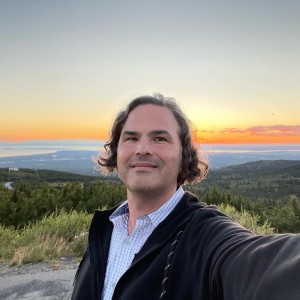
Tuesday Sep 06, 2022
Tuesday Sep 06, 2022
Rob Kinneen has been an ambassador for Alaskan cuisine through his guest chef appearances, speaking engagements, cooking demonstrations and private caterings. His work has revolutionized how people see and understand the state’s traditional foods. His understanding of traditional foods goes back to growing up in Petersburg, Alaska, where he remembers clamming with his uncles, fishing with his dad and picking berries. There was also venison and the first time he had fresh asparagus — it was so much better than the stuff that came out of the can.
He works for the food non-profit NATIFS now, where he promotes food relief, education, awareness and accessibility of traditional foods. He says that this position is a one-of-one, there’s nothing else out there like it. It’s not so much a job as it is what he does, and who he is as a chef and as a person of Tlingit heritage.
In his late-40s now, Rob says that he started to really notice the negative effects that alcohol was having on his body and his lifestyle. So, over two years ago, he became alcohol-free. He says that, right now, he’s proud of being exactly who he wants to be — he has more hours in the day, and his mind is clear and he’s confident.
Chatter Marks is a podcast of the Anchorage Museum, and is available on Apple Podcasts, Spotify, Amazon Music and Google Podcasts. Just search "Chatter Marks."
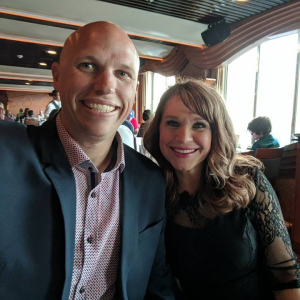
Friday Sep 02, 2022
EP 112 The Boarderline Days with Matt Eastman
Friday Sep 02, 2022
Friday Sep 02, 2022
In this one, Cody talks to Matt Eastman, an entrepreneur and a businessman. Over the years, he’s founded a number of companies — an inflatable party rental business called Tons of Fun Entertainment, a hockey blade protector business called Hockey Wraparound, and a sunglasses business called Teamclix. But before all that, he was the most business-minded manager at the Dimond Center Boarderline, an Alaskan snow and skate shop that supported the scene from 1989 to 2006. From 1997 to 2004, Matt embodied so much of what makes a great leader — he was supportive, empathetic, passionate and creative. And he was a great salesman — he helped turn Boarderline from a strictly core shop that intimidated a lot of customers to a more inviting one. He was there throughout so many of the growing pains and the shenanigans, and he was truly able to find a balance between the pranks and playfulness and running a business.
Matt says he remembers those old Boarderline days and thinks about them all the time. He remembers how employees were given $50 for catching thieves, and how that resulted in chasing people through the mall and fistfights. He remembers chain stores moving into the mall and how they would try to poach Boarderline employees without understanding that their work life and their social life was tied to the culture created by the shop. He remembers the video premieres and how Boarderline staff and team riders were the rockstars of their day. He says that, at its core, Boarderline was a work family. And in some cases, this work family would go beyond what was expected to support each other.
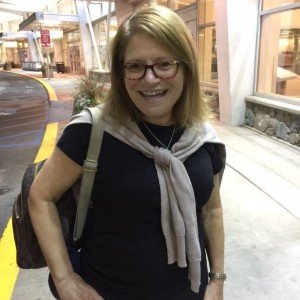
Thursday Aug 11, 2022
EP 111 Johnny’s Girl, a neon Anchorage and a life of her own with Kim Rich
Thursday Aug 11, 2022
Thursday Aug 11, 2022
In this one, Cody talks to journalist and author Kim Rich. She wrote the classic memoir “Johnny’s Girl,” it’s about her tumultuous upbringing in Anchorage’s underworld. Back in the 1960s, her dad, Johnny, worked Anchorage’s nightlife — gambling houses, prostitution and get-rich-quick schemes. Her mom, Ginger, was an exotic dancer. She had mental health issues and spent years of her life in a number of institutions. Both of their lives — Johnny and Ginger — were cut short, leaving Kim to fend for herself at a young age.
Through research, interviews and recollection, Kim would write about her parents to try to work out her feelings and understanding of them. She found that her dad was a complicated man, and that her mom was a tragic figure — loving and caring, but in the throes of mental anguish.
She’s always put a lot of thought into describing and understanding Anchorage as a city and the people who live there. In her book, she describes it as neon — both physically neon and existentially neon. The bright, flashy lights of downtown Anchorage and the pioneer spirit of the 60s influenced her perception. It was a place of endless possibilities, where anyone could do anything; a place you could run away to and remake yourself in whatever image you wished.
Today, Kim says that she’s enjoying getting older and that she feels like she’s finally mellowing. She lives in Louisiana — teaching journalism and trying to get used to the fact that her kids have moved out of the house — but she still considers Alaska home.
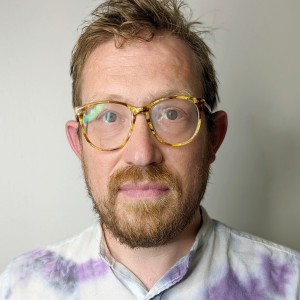
Monday Aug 01, 2022
Chatter Marks EP 043 Digging for Alaskana with Jimmy Riordan
Monday Aug 01, 2022
Monday Aug 01, 2022
Jimmy Riordan is a multidisciplinary artist and educator who’s currently in-residence at the Anchorage Museum, digitizing and archiving the work of Yukon-Kuskokwim Delta musicians, as well as all the other Alaska music he’s collected over the years. He spends a lot of time in thrift stores and going through junk bins and scouring the internet — anywhere old records might exist.
When he first started listening to old Alaskan albums and radio programs, he thought he was going to hear a lot of tourist music and songs about things like reindeer and caribou. But he soon realized that there was a lot of diversity in what he was hearing. There was hip hop, psychedelic rock, metal, punk. He even found a record of soundbites from people talking about their experience during the 1964 earthquake.
His motivation is that of a fan, driven by interest and excitement. If he can provide a service that is useful, in exchange for all the information and all the stuff that he’s getting, then that’s what he’s looking to do. His fascination with the music of Joe Paul is a good example. Joe Paul is a country and gospel singer originally from Kipnuk, Alaska, a community along the Kuskokwim River. And one day, while out digging for Alaskana, Jimmy came across one of his albums, “Eskimo Songs, Stories and Country Music.” He was floored by it and says that it rejuvenated his interest in collecting.
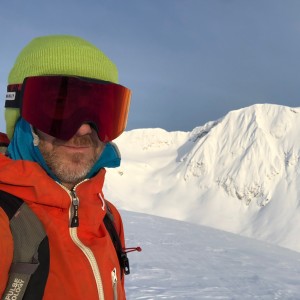
Sunday Jul 24, 2022
EP 110 Breaking out the Theraflu with Andre Spinelli
Sunday Jul 24, 2022
Sunday Jul 24, 2022
In this one, Cody talks to Andre Spinelli, better known as Dre. In snowboarding, Dre is known for going big — off jumps, off cornices, even a lot of the handrails he used to hit were big. It’s probably because he started riding with old school Alaskan heavies like Dan Coffey and Kovi Linden. They might not have been as technical as other riders, but they were always charging down the mountain and going huge. Then, after Dre had been riding for awhile and filming parts for JB Deuce, Turnagain Hardcore and Think Thank, pro snowboarder Mark Landvik suggested that he and Dre move to Bellingham, Washington to pursue snowboarding as a career. Dre declined the offer because he wanted to stay in Alaska to see how far he could take snowboarding there. He was also in line to take over his dad’s construction business, Spinell Homes.
Even when he was snowboarding all the time and filming video parts, Dre worked for Spinell Homes. He’d work his shift and then he would meet up with a film crew to get a shot. He did this often enough to get enough shots for multiple video parts a year. So, to say that his work ethic was unmatched, is probably a huge understatement. Today, he’s the president of Spinell Homes. He’s responsible for everything from home design to meeting with buyers to hiring employees to land development. That need to excel and go higher has always been there, he says. As a kid, he would jump off everything — playground equipment and even roofs into snow. Nowadays, he’s a weekend warrior, riding whenever he can and introducing his kids to it. In fact, his son, just like Dre, is starting to go big too.
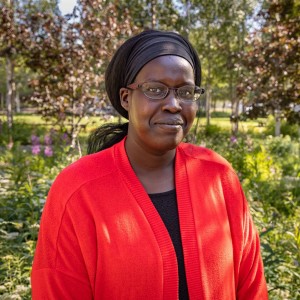
Monday Jul 11, 2022
Chatter Marks EP 042 Navigating two different cultures with Nyabony Gat
Monday Jul 11, 2022
Monday Jul 11, 2022
Nyabony Gat says that her immigrant story started 22 years ago. In 1992, when her parents and older siblings fled from South Sudan and found refuge in Ethiopia — the Second Sudanese civil war was going on between the central Sudanese government and the Sudan People's Liberation Army. It was a long and bloody war and it caused four million people to be displaced.
Nyabony doesn’t remember much from her childhood. She knows that she was born in Ethiopia and she knows that she and her family came to the United States when she was 3 or 4 years old. Other than that, she’s had to rely on stories from her parents and her aunts and her uncles. Those stories are helpful in understanding her identity, but they’re not a perfect substitute. She says that only personal experience can fill that void.
Today, she works with Alaska’s immigrant and refugee community. She helps them overcome challenges and achieve their goals. And in that process, she says, they’re helping her better understand her background and herself.
Chatter Marks is a podcast of the Anchorage Museum, and is available on Apple Podcasts, Spotify, Amazon Music and Google Podcasts. Just search "Chatter Marks."
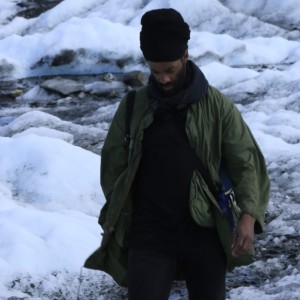
Tuesday Jul 05, 2022
Tuesday Jul 05, 2022
When interdisciplinary artist LaMont Hamilton was young, he drew portraits of figures that he admired — Jimmy Hendrix, Che Guevara, Malcom X. He called it “scribble art,” a term he invented to describe abstract art that, the longer you look at it, the more it reveals. Then, as he got older, he became interested in photography. But he says that his first love, the one that he considers to be the foundation of his work, is poetry.
He says that a lot of what he does cannot easily be translated to words. It needs to be experienced and understood through our senses. To sit with it and to meditate on it opens us up to its energy and allows ideas to gravitate toward us. When this happens, we create a situation that nurtures a deeper conversation with the world around us.
Right now, he’s in-residence, at the Anchorage Museum, working with poets, artists and musicians, and developing a light and sound installation called "To Hear the Earth Before the End of the World." It features sounds of elements — air, earth, fire, water, and aether. And field recordings from Europe and North and South America — sounds of our changing earth. He says that, unlike a painting, this exhibition is an experience that encounters you, you don’t encounter it because it’s going to be playing whether you’re there or not.
Chatter Marks is a podcast of the Anchorage Museum, and is available on Apple Podcasts, Spotify, Amazon Music and Google Podcasts. Just search "Chatter Marks."
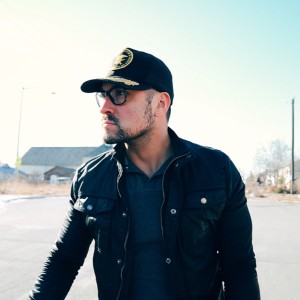
Sunday Jun 26, 2022
Chatter Marks EP 40 Infusing life and art with Charles J. Tice
Sunday Jun 26, 2022
Sunday Jun 26, 2022
Charles J. Tice is a visual and literary creative in Anchorage, Alaska with an emphasis on photography and gonzo journalism. He's currently in-residence, at the Anchorage Museum, working on a project called Artist Proof #6. It’s a book that’ll feature 100 photographs of strangers, assisted by a narrative. The writing is important, he says, probably the most important part of the project. So, he works on a typewriter because it’s less about technical precision and more about getting his ideas onto the page. He says the project is a love song, and that it’s as much about discovering who he is as it is about representing his community.
Most of the work that he does is a first person narrative. He creates gonzo journalism, infusing himself into a story and becoming part of it. This was true when he quit a steady job to work on a political campaign that he believed in; It was true when he hitchhiked across the United States, photographing people and talking to them about their lives; It was true when he tracked down his birth mother; And it’s true now. Because, more often than not, his life and his work are one and the same — they’re forever intertwined and feeding off each other.
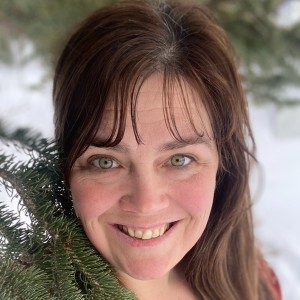
Saturday Jun 11, 2022
EP 109 A journey of pain and forgiveness with Elishaba Doerksen
Saturday Jun 11, 2022
Saturday Jun 11, 2022
In this one, Cody talks with Elishaba Doerksen, the oldest daughter of fundamentalist Robert Hale, better known as Papa Pilgrim. In 2000, the Hale family — consisting of Papa Pilgrim, his wife and 15 kids — moved from the Rocky Mountains of New Mexico to a homestead in the Wrangell–St. Elias National Park and Preserve in Alaska. It's the largest area managed by the National Park Service, with over 13 million acres of land. In that park and on that homestead, Papa Pilgrim inflicted sadistic physical, mental and sexual abuse onto his family. Elishaba, the oldest of the 15 siblings, endured the brunt of that abuse. To the point where he was planning on starting another family in the woods with Elishaba as his wife. He was gathering scripture so that he could biblically justify the decision. That’s when Elishaba — at 29 years old — decided to escape on a snowmachine.The decision to tell her story wasn’t an easy one. At first, it felt like she was betraying her family by telling all their secrets because that’s what Papa Pilgrim had brought her up to believe. More often than not, she believed that by taking her father’s abuse, she was sparing her mother and her siblings from abuse. It was her job to make him happy and if she didn’t do that, then her father would set his sights on others. All that pain would be detailed in a book called “Out of the Wilderness,” but it would take 11 years before she felt comfortable enough to share her story publicly. Now she believes in the positive repercussions of telling her story: That pain is a gift. It’s a bridge. It’s something that helps us understand one another and it opens a door for relationships and forgiveness. And forgiveness, well, that’s letting go of the debt that that person owes you.
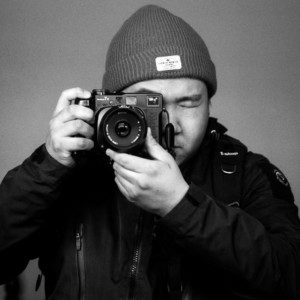
Tuesday May 31, 2022
Chatter Marks EP 039 Searching for community with Young Kim
Tuesday May 31, 2022
Tuesday May 31, 2022
Photographer Young Kim says that it’s weird to live in a place that’s so big and so busy that people aren’t checking up on each other. He prefers smaller communities where everyone knows each other. His longing to be part of something tight-knit might come from his early childhood, when he and his family lived in Sand Point, a town of about 600 located along the Aleutian Islands.
Young’s sense of community has, at times, been reinforced by growing up in the restaurant industry. Specifically, he remembers the staff dinners, when everyone would sit down together for a meal after their shift. Today, Young is the co-owner of Akela Space, a community gallery and photography studio in Anchorage. It’s a place that he and his co-owner, Jovell Rennie, hope to be a hub for community and for knowledge.
The photography that Young is working on right now is about his mom and how their relationship is changing. When we’re younger, our parents are the caregivers, but as we get older those roles can switch. So, it’s important for our expectations to be flexible because things don’t always play out the way we imagine.





